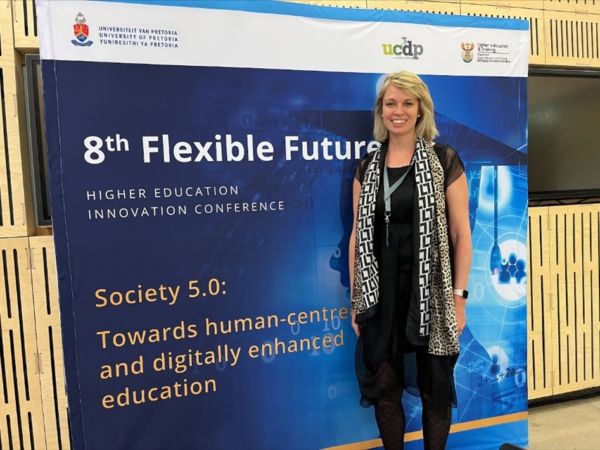Akademia lecturer helps develop a new framework for academics
Salomien Boshoff is a lecturer of BCom (Business Management) at Akademia. In cooperation with Elzette le Roux of the University Stellenbosch, she recently developed a framework for lecturers and academic support staff to help them navigate through certain challenges.
‘Emergency long-distance teaching’, ‘society 5.0’, and ‘online and/or mixed learning’ are some of the terms used to describe the recent disruptions, complexities, and changes in higher education caused by the Covid-19 pandemic. According to Boshoff, academics needed to adapt rapidly to ensure students’ continued success by utilising online or mixed teaching- and learning methods.
The framework developed by Boshoff and Le Roux serves as a compass precisely to help lecturers navigate student teaching through three focus areas of the teaching- and learning agenda. There three focus areas include:
Curriculum: including what is taught, how and what is assessed, what the lecturer’s underlying philosophy is, and who the students are.
Teaching and learning: the execution of the curriculum in different teaching spaces, especially in long-distance- and mixed learning modes of delivery.
Learner analysis: including assessment and reflection of the analysis.
This framework helps the lecturer to hone in while planning, designing, implementing, and reflecting, and can be used as a compass during staff development. Various academic support staff members and lecturers who are already using this framework during planning, designing, implementation, and contemplation of modules and programmes experience a positive effect. Boshoff mentioned that she felt excited about the possibilities that this framework could open up for other academics.
Recently, at the yearly Flexible Future conference held from 24 to 25 August at the University of Pretoria, Boshoff and Le Roux also delivered a presentation on the framework they developed. The presentation was titled: ‘STACK: a lens and compass for academic staff during curriculum design and implementation.’
‘It was an incredible privilege to share our ideas with other academics at the Flexible Future Congress,’ said Boshoff. The main theme of this conference was ‘society 5.0: towards human-centred and digitally enhanced education’. Boshoff further mentioned that the conference once again proved how different establishments and academics can work together to offer the best possible solutions in optimal learning to students in South Africa.
‘All over South Africa, wonderful initiatives are being used to place the student—as a person—at the core in various actions at higher education institutions,’ Boshoff concluded. ‘These two days were filled with plans for the future that will promote learning among students. We look forward to this future.’

